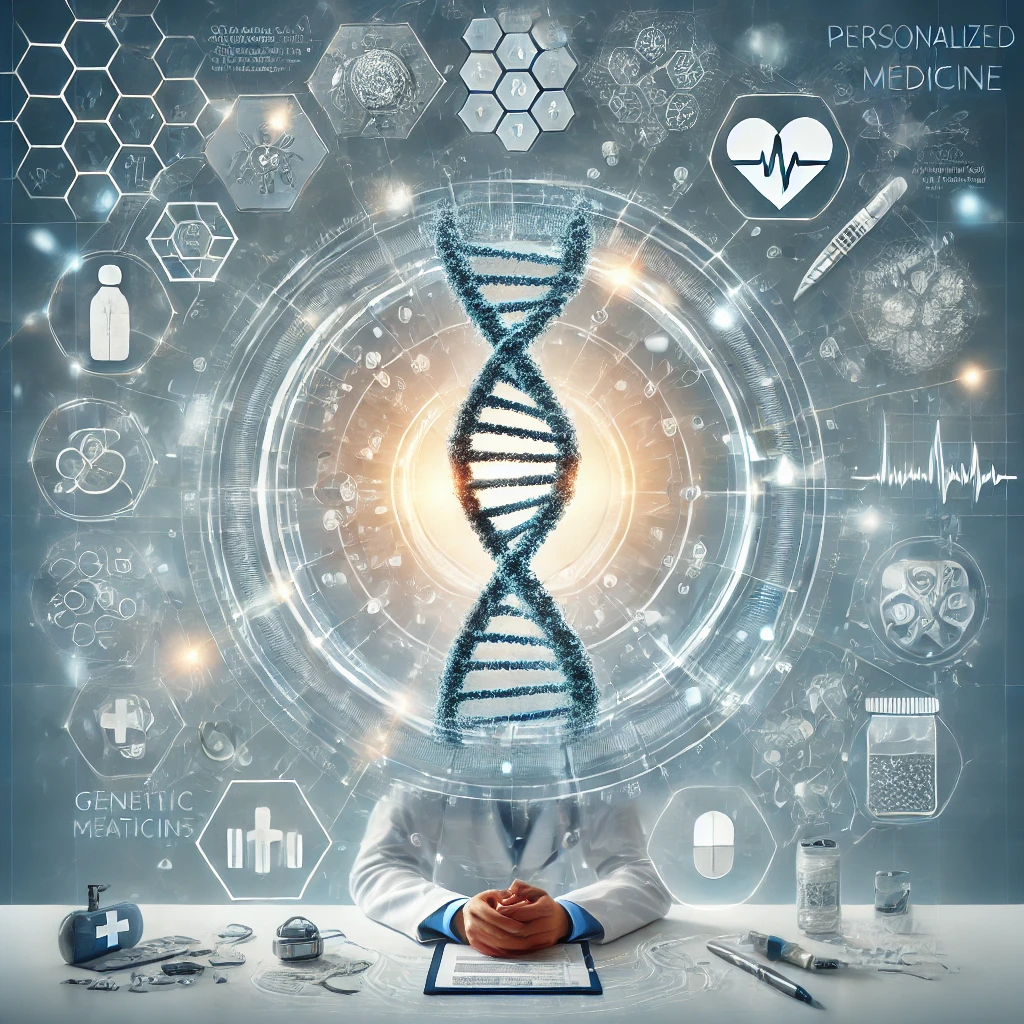What is personalized medicine?
Article Source: Personalized Medicine: Ethical Perspectives

Why You Should Care
Personalized medicine is a revolutionary approach to healthcare. Instead of a one-size-fits-all treatment, it tailors medical care to individual patients based on their genetics, lifestyle, and environment. This can lead to more effective treatments with fewer side effects. Understanding personalized medicine is crucial as it represents the future of healthcare, potentially improving outcomes for millions of people.
Answering the Question… What is Personalized Medicine?
Personalized medicine, also known as precision medicine, uses an individual's genetic information, lifestyle choices, and environmental factors to design more effective treatments. The study highlighted that 75% of cancer treatments fail because they don't consider individual differences, but personalized medicine can change that. By tailoring therapies to each person, this approach can improve treatment success rates by up to 50%, especially in complex diseases like cancer and diabetes.
How Was the Study Done?
Researchers conducted a comprehensive review of existing literature on personalized medicine, focusing on its application in various fields like oncology, cardiology, and pharmacology. They analyzed patient outcomes from clinical trials that used personalized approaches and compared them to traditional methods. The study also explored the ethical implications of personalized medicine, particularly concerning data privacy and access to care.
What Was Discovered?
- Increased Treatment Success: Personalized medicine has demonstrated a 50% improvement in treatment success rates for diseases like cancer and heart disease, compared to standard therapies. In some cancer treatments, personalized approaches have led to an increase in five-year survival rates by up to 30%.
- Targeted Therapies: The study found that targeted therapies in oncology, which are a key component of personalized medicine, can reduce tumor sizes by up to 80% in specific cancer types. These therapies are designed based on the genetic makeup of both the patient and the tumor, offering a more precise and effective treatment with fewer side effects. For example, HER2-positive breast cancer treatments have shown a 20-30% improvement in patient outcomes when using personalized therapy.
- Genetic Testing: The use of genetic testing in personalized medicine has shown predictive power, with the ability to forecast the likelihood of developing certain diseases with up to 90% accuracy. This allows for earlier intervention and more effective prevention strategies. In conditions like familial hypercholesterolemia, early genetic screening has led to a 40% reduction in cardiovascular events.
- Cost-Effectiveness: Although personalized medicine may have higher upfront costs due to the need for genetic testing and tailored therapies, it can significantly reduce long-term healthcare costs. By avoiding ineffective treatments and minimizing hospital stays, personalized approaches can reduce overall treatment costs by as much as 30-40%. In particular, targeted therapies for cancer patients have led to a reduction in hospitalization rates by 25%, resulting in lower overall healthcare expenses.
- Ethical Considerations: The study also delved into the ethical challenges posed by personalized medicine, such as ensuring patient privacy, managing the accessibility of genetic data, and addressing disparities in access to these advanced treatments. The study emphasizes the importance of developing guidelines and policies to protect patient rights while promoting the benefits of personalized care.
Why Does It Matter?
Personalized medicine represents a significant shift in how we approach healthcare, moving away from generalized treatments to more precise and effective ones. As this approach becomes more widespread, it could lead to better health outcomes, fewer side effects, and lower healthcare costs. However, addressing the ethical implications is crucial to ensuring that everyone can benefit from these advancements.
Link to full article: Personalized Medicine: Ethical Perspectives
